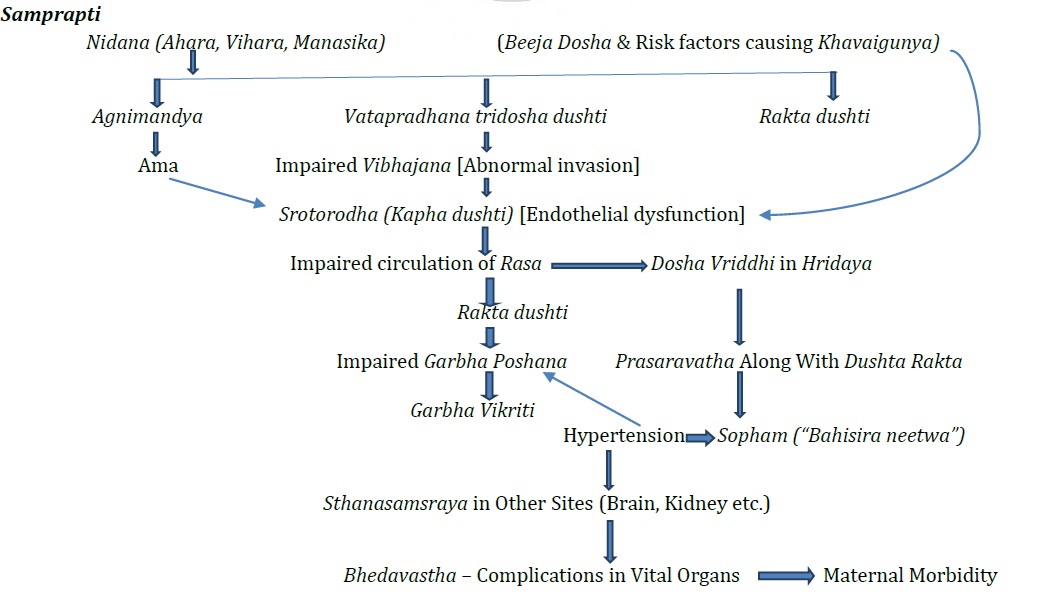Pregnancy-Induced Hypertension - Ayurvedic Understanding
DOI:
https://doi.org/10.47070/ijapr.v10i12.2616Keywords:
Hypertension, Preconceptional, Pregnancy-induced, Pre-eclampsia, Garbhini paricharyaAbstract
Pregnancy-induced hypertensive disorders are included among the most common medical complications of pregnancy with an incidence of 5–10%. Hypertension that develops as a direct result of gravid state is referred to as ‘pregnancy-induced hypertension’. The timely management of pregnancy complicated with hypertensive disorders is significant, otherwise it can lead to adverse fetal, neonatal and maternal outcomes. The basic pathology in pre-eclampsia, one of the types of hypertensive disorders is endothelial dysfunction and intense vasospasm due to abnormal placentation compromising blood flow to the foetoplacental unit. There is no direct reference of pregnancy-induced hypertension in Ayurveda classics, but the manifested symptoms can be explained within the purview of Ayurveda. Abnormality in placentation can be considered as impairment in the normal functioning of Vata dosha and when the pathology progresses further; Kapha, Pitta also play their own roles. In a woman with or without a previous history of pre-eclampsia, intervention should begin from pre-conceptional period. Planned pregnancy after pre-conceptional care followed by Garbhini paricharya along with the use of Garbhasthapaka dravya, Rasayana dravya, Masanumasika Garbhasravahara dravya can play significant roles in the prevention as well as management of pregnancy-induced hypertension thus improving the maternal and foetal outcomes.
Downloads




